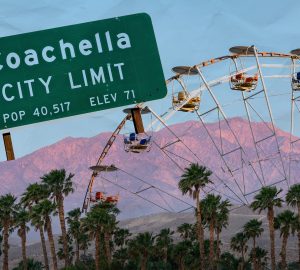By Matt Franklin
On Sept. 9, before I went to bed, the Large Hadron Collider (LHC) was scheduled to run its first full test during the night. The next morning, BBC News reported that the test was a smashing success. The well-versed reader may guess that this can only mean one thing: the universe was destroyed over night and replaced by something infinitely weirder than anything you or I or anyone else could ever dream. This is only fitting, since we were asleep.
The concept is simple. Writer Douglas Adams (author of “The Hitchhiker’s Guide to the Galaxy”) once suggested that a question and an answer existing simultaneously in the same universe would form an impossible paradox (and specifically not a mildly improbable one). If you have an answer, you do not have a question and vise versa. You might have another question, but only because the universe likes to keep you and me on our collective toes. You might also have doubt, but doubt is just an annoying little creep nobody ever talks to at parties and let’s not change the subject just yet.
Getting back to paradoxes, a particular breed of person known as a scientist gets rather finicky about paradoxes. For reasons which are not entirely clear, though it may have something to do with genetics (or whatever scientists are calling it this week), scientists simply will not let unanswered questions, paradoxes, or questions about paradoxes alone. Placed in large enough populations inside a natural scientific habitat, scientists will eventually grow restless and attempt to poke holes in the fabric of Space-Time (or Super Strings or whatever scientists are calling it this week) with very large sticks.
Of course, the natural scientific habitat is a hermetically sealed, biologically sterile room. As you may imagine, these places are usually kept devoid of very large sticks so scientists won’t poke each other (or themselves, in extreme isolation) in the eye to see what happens. It occurs to me that scientists may be fans of poking things. Undaunted, the intrepid scientist will invent a high-tech surrogate for very large sticks. On rare occasions, a scientist will get particularly riled (if that’s even a word) up and create an uncomfortably imaginative poking device, such as the LHC.
The best description for the LHC is a hula-hoop you’ll never be able to use. Don’t take it personally. It’s not because it’s astronomically expensive, nor because it’s 17 miles around, nor even because you don’t have security clearance or at least a Ph.D in quantum physics (or whatever scientists are calling it this week). In technical terms, these are all great reasons, but I’m referring to the problem about how you go about making marbles spin around. Really, I’m surprised you didn’t guess that earlier in the paragraph.
While a child’s hula-hoop is designed to make all the little marbles inside move in a generally unified direction to make noise, the LHC operates by spinning two sets of protons (a subtype of particles apparently called hadrons, although I hadn’t heard of hadrons before Sept. 10) in opposite directions until one or other of the two groups fails to yield, a collision occurs, scientists marvel at all the pretty lights and clanging sounds, and insurance salesmen stand around wondering why nobody wants to sue or call an ambulance.
If you (assuming you are not a scientist) or I (assuming I am not a scientist either, which is what I personally like to assume quite often) were to study the after effects of such a collision, we’d have no idea what to look for. Scientists, on the other hand, like to practice guessing an event’s outcome. Believe it or not, they’ve become surprisingly good at it. This does stop them from being regularly astounded at their own results because, as has already been discussed, questions and answers cannot coexist simultaneously. If they did, how would the scientists know which questions to ask in the first place?
Finally, we come back to discussing how activation of the LHC might cause the end of the universe. I find it extremely unlikely that at least a single question would not have been answered for some lonely scientist among all the present and assembled. It wouldn’t look all that good for the scientists if one wasn’t. I’m quite confident, therefore, that the universe compensated for the paradox by completely replacing itself with an even stranger version that we were all just getting used to. Thanks a lot, scientists.
For more information on the LHC, visit http://lhc.web.cern.ch/lhc/



























